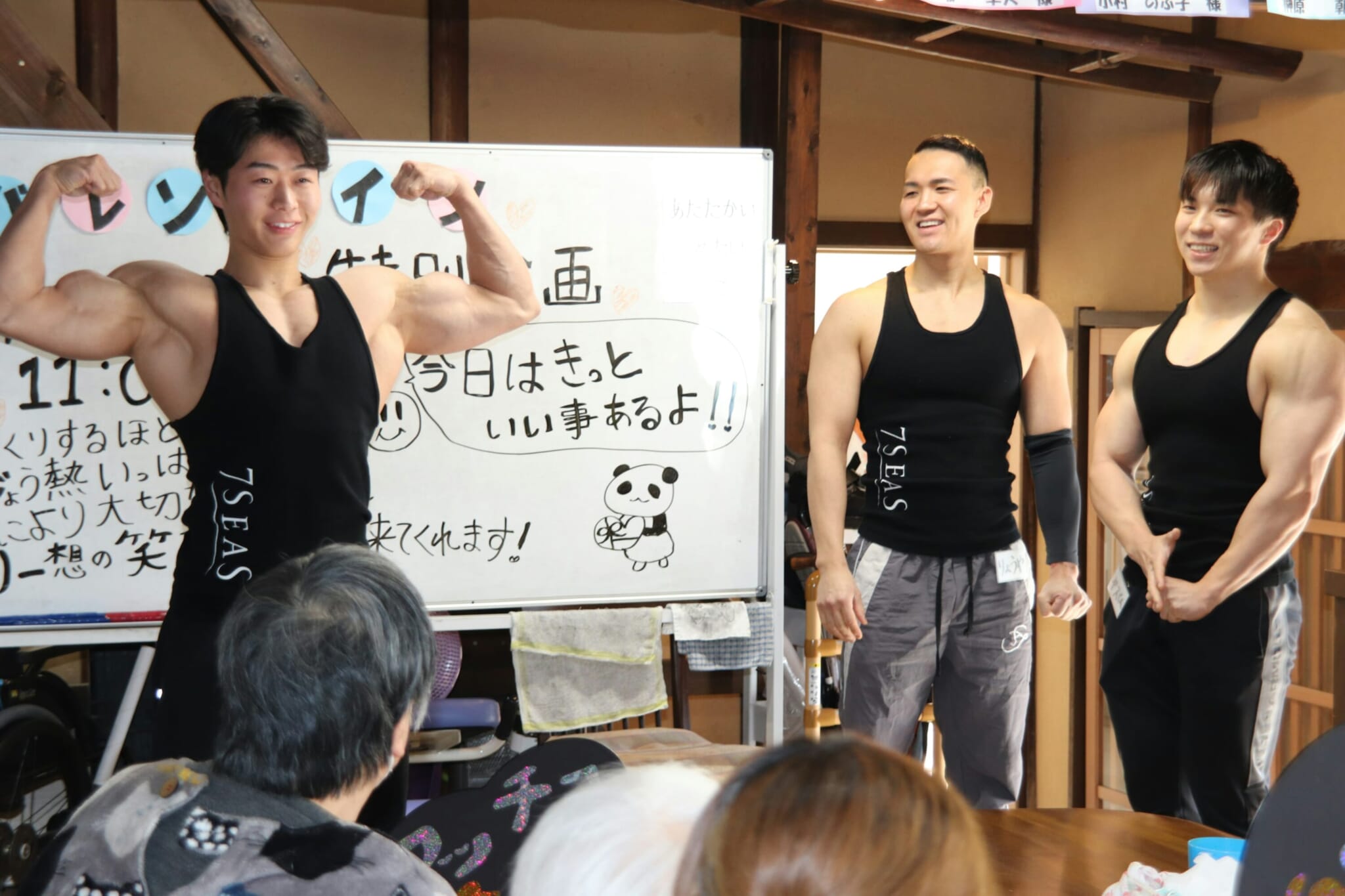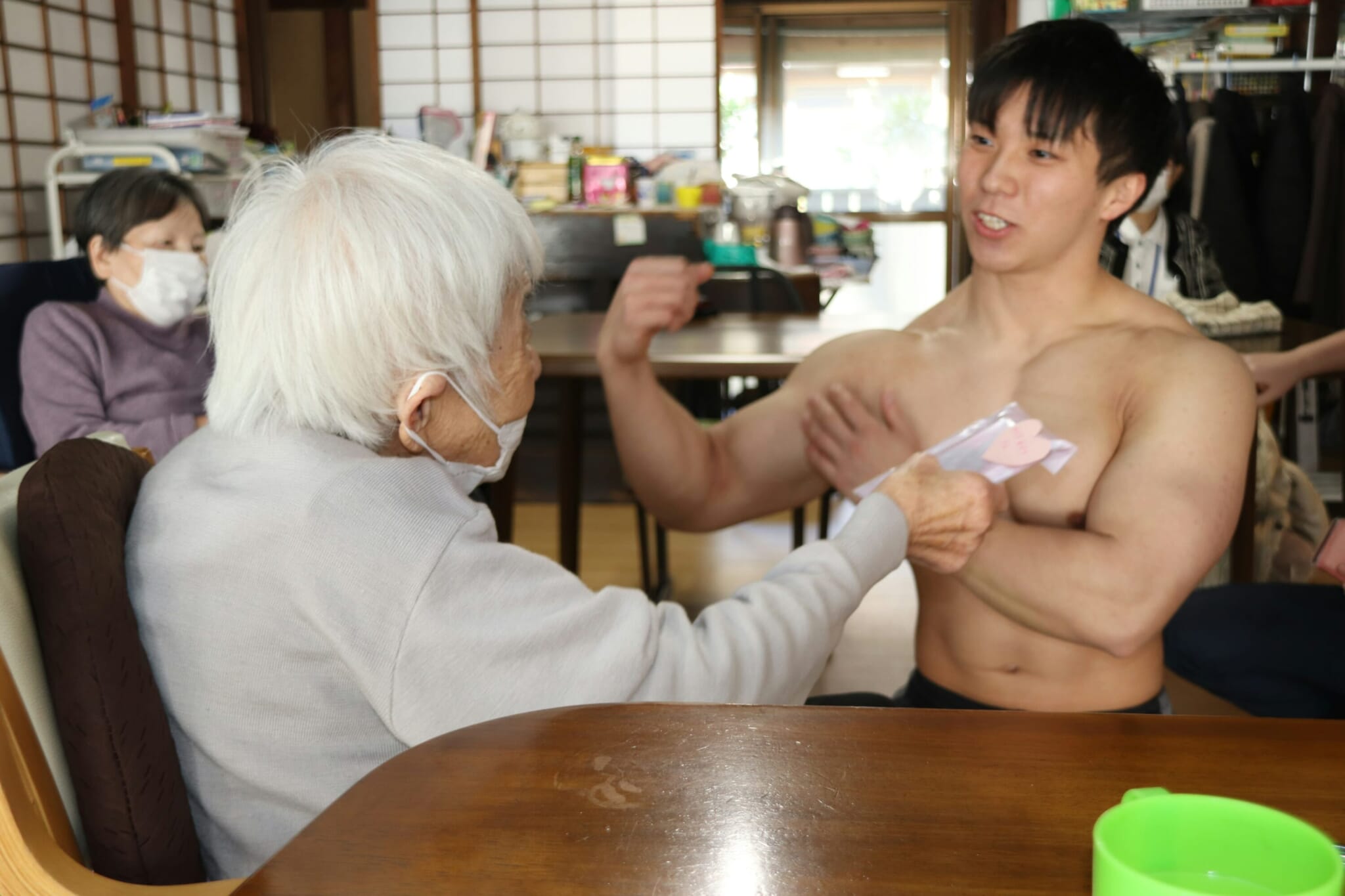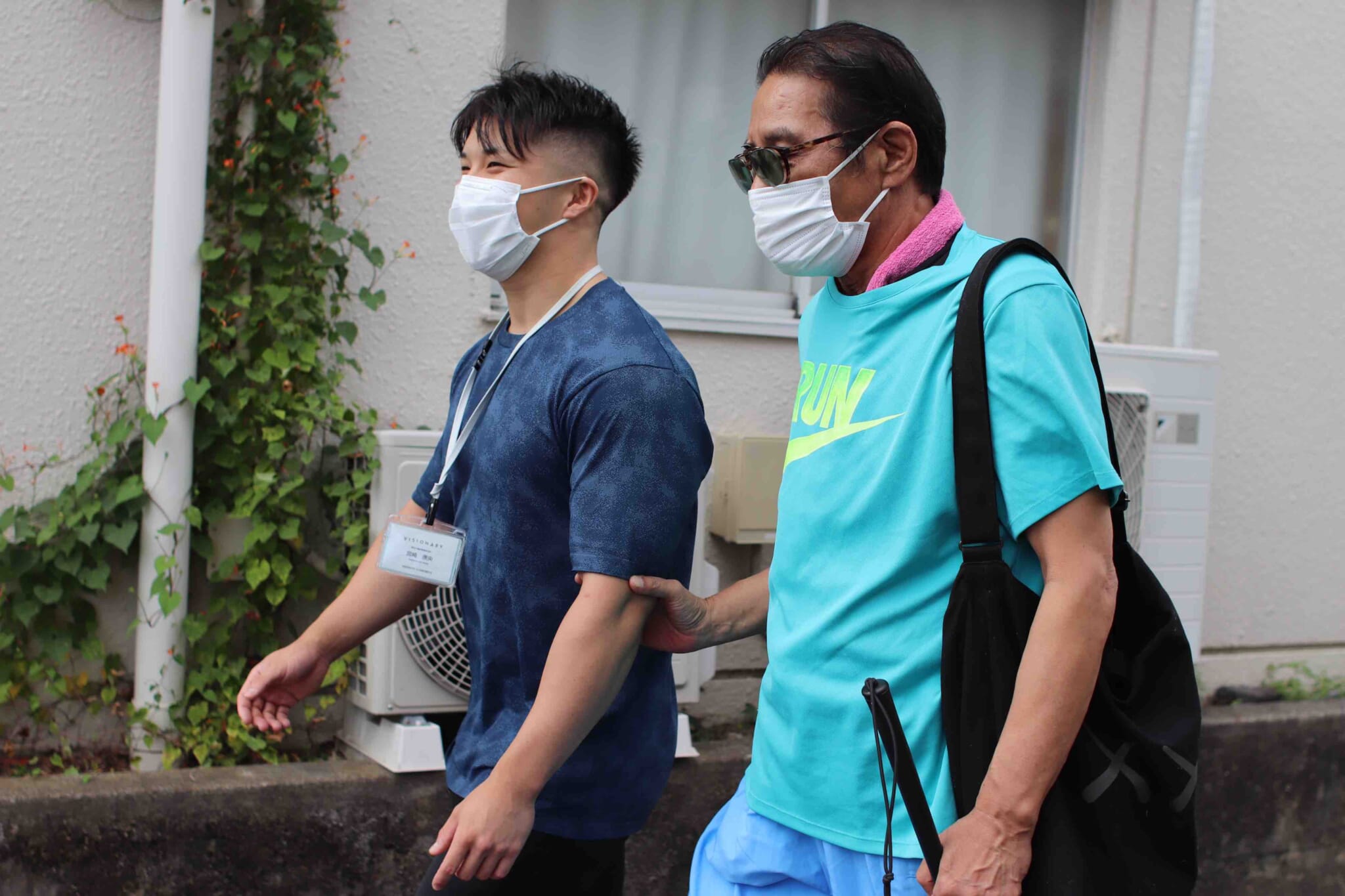Japan’s dwindling birthrate and soaring elderly population presents a looming demographic crisis that has already been threatening various aspects of society. Elders are working into their later years to support themselves, and whole towns are disappearing into nothingness as the younger generation abandon their countryside hometowns searching for jobs in big cities. The World Economic Forum estimates that around 40% of the country’s population will be 65 or older by 2050. And with that staggering statistic comes the reciprocal demand for nursing and elderly care.
According to a survey by the Ministry of Health, Labor and Welfare, an estimated 2.72 million caregivers will be needed by 2040, equal to approximately 600,000 more workers than today.
But there aren’t nearly enough applicants to fill in this massive gap in the nursing care industry, and the situation will only worsen. Some welfare facilities have found an unexpected but genius solution — employing muscular bodybuilders as caregivers.

Macho caregivers from the 7Seas fitness team make a special visit to a facility in Aichi Prefecture for a Valentine’s Day event. Photo courtesy of Visionary Co., Ltd.
The Power of Macho Care
“Macho Care” is a creative initiative that Visionary Co., Ltd. care facilities are employing in the hopes of sparking awareness and recruiting young and strong individuals.
“Before Macho Caregiving was launched, even when we posted job openings, we didn’t even get any applications or inquiries,” said President Yusuke Niwa for Yahoo! Japan.
Visionary currently operates 29 nursing and care facilities nationwide, and a quarter of their workforce is under 24 years old. The Macho Care program has employed over 30 bodybuilding caregivers.
Caregiving often requires a lot of physical strength. When staff members do not have enough physical training, they risk hurting their own bodies while lifting patients. The macho caretakers provide that extra power that makes transferring patients a smoother and safer experience.

Macho caregivers entertain patients in Aichi Prefecture for a Valentine’s Day event. Photo courtesy of Visionary Co., Ltd.
“I thought it was great that the muscle training I enjoyed could contribute to society,” said one of the macho caretakers Tatsumi Hokuto, who was a former member of the Maritime Self-Defense Force and winner of a national amateur bodybuilding contest.
After finishing his shift as a caretaker, Hokuto still heads off to the gym. Macho caregivers are paid for their gym training as well, for up to two hours a day. As an additional incentive to maintain their physique, the bodybuilders even have the chance to win a bonus based on their performance.
Another caregiver, Yasuhiro Miyazaki, said that his impression of the care industry prior to joining the company was starkly negative, seen as tough and low-paying labor. But after discovering that he could utilize his training skills towards supporting patients who needed extra strength and support to get around, his perception and career path changed drastically.
Miyazaki provides at-home care, visiting clients to assist them in bathing, getting dressed, preparing meals and anything else they may need an extra set of muscle to accomplish. Miyazaki originally went to vocational school to become a trainer, and now he uses those techniques to work on his patients’ muscle strength training.
On top of nursing care, Miyazaki is also a core member of Visionary’s corporate fitness team 7Seas. His teammates include Ryoya Niwa, Takuya Usui, Hokuto Tatsumi and Takuya Sumi. Together the men serve as spokespeople for the Macho Care concept and participate in bodybuilding competitions. Miyazaki has set his goal to win the Japan Body Building and Fitness Federation tournament. After conquering that, he hopes to move on to the World Tournament — continuously challenging himself to get stronger for his patients.

Miyazaki (left) walking with a blind patient (right). Photo courtesy of Visionary Co., Ltd.
Changing the Industry
And it’s not just physical support, caregivers like Miyazaki offer mental support as well. He greets his patients cheerfully and encourages them to open up through conversation.
“When I go to a summer festival or fireworks display, I sometimes convey the atmosphere to the users so that they can feel the seasons together. Some users can’t leave their homes easily, so when they hear my stories, they feel as if they’ve experienced it themselves,” he explains.
Visionary’s macho caretakers also host special events and presentations throughout the year to promote healthy lifestyles and give an energy boost to nursing facilities. Earlier this year for Valentine’s Day, the group visited a care center in Aichi Prefecture to hand out chocolates and entertain the residents. The macho caregivers led exercise routines and took photos with the patients as the elders cheered.
Activities like this bring big smiles to the patients and foster a lively atmosphere at the facilities, taking away any stigma or anxiety that may come with the care industry. The Macho Care program hopes to not only revitalize nursing in a modern new way, but showcase caregiving as a noble and interesting career choice for young people to aspire to.
Related Posts
Discover Tokyo, Every Week
Get the city’s best stories, under-the-radar spots and exclusive invites delivered straight to your inbox.


AloJapan.com